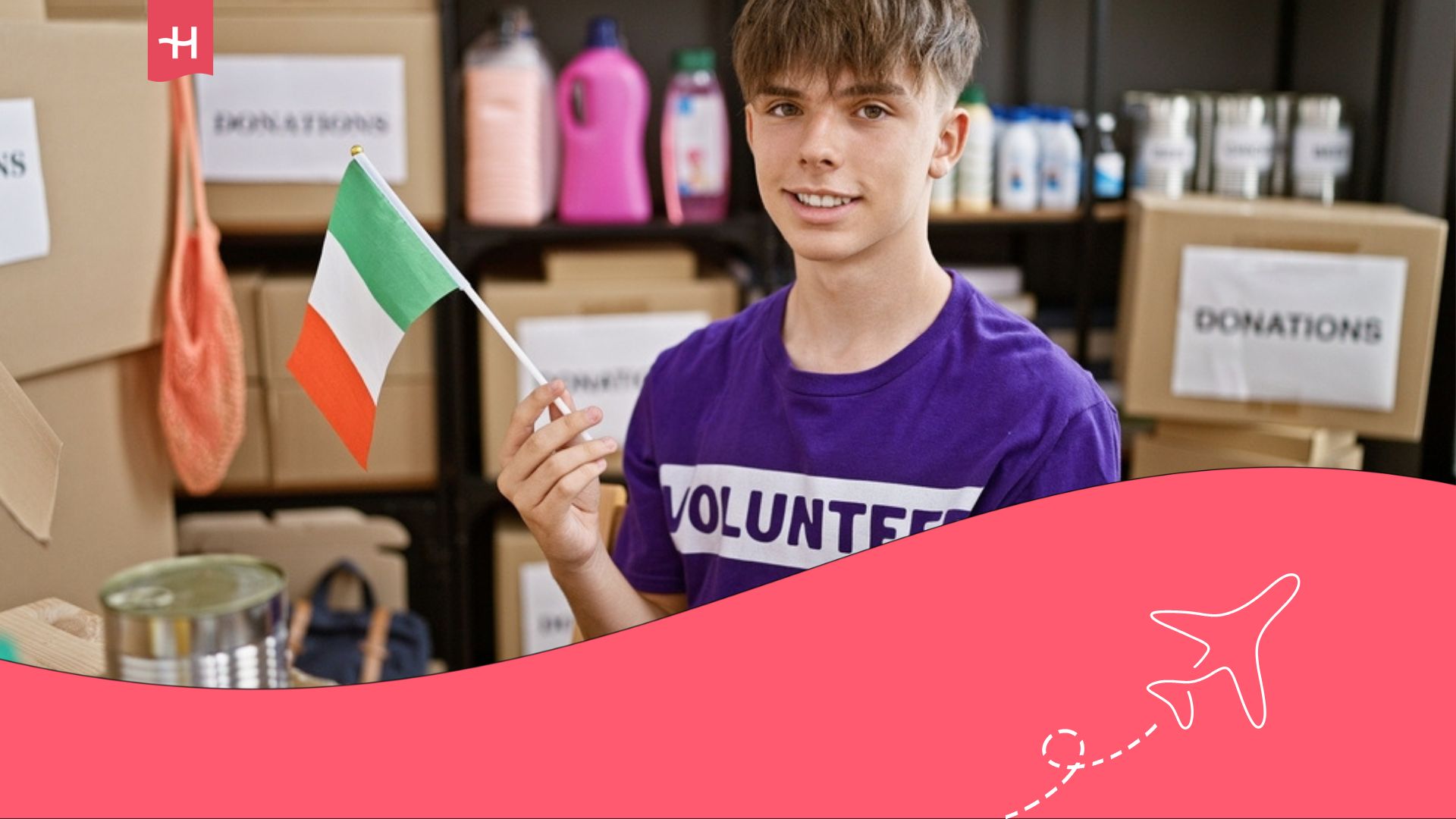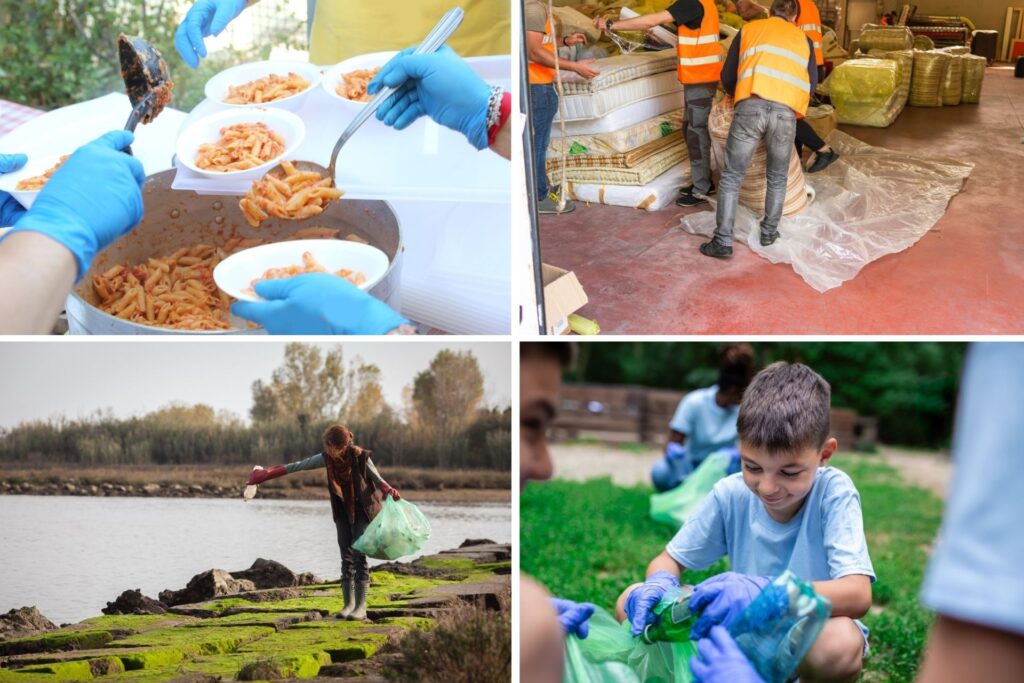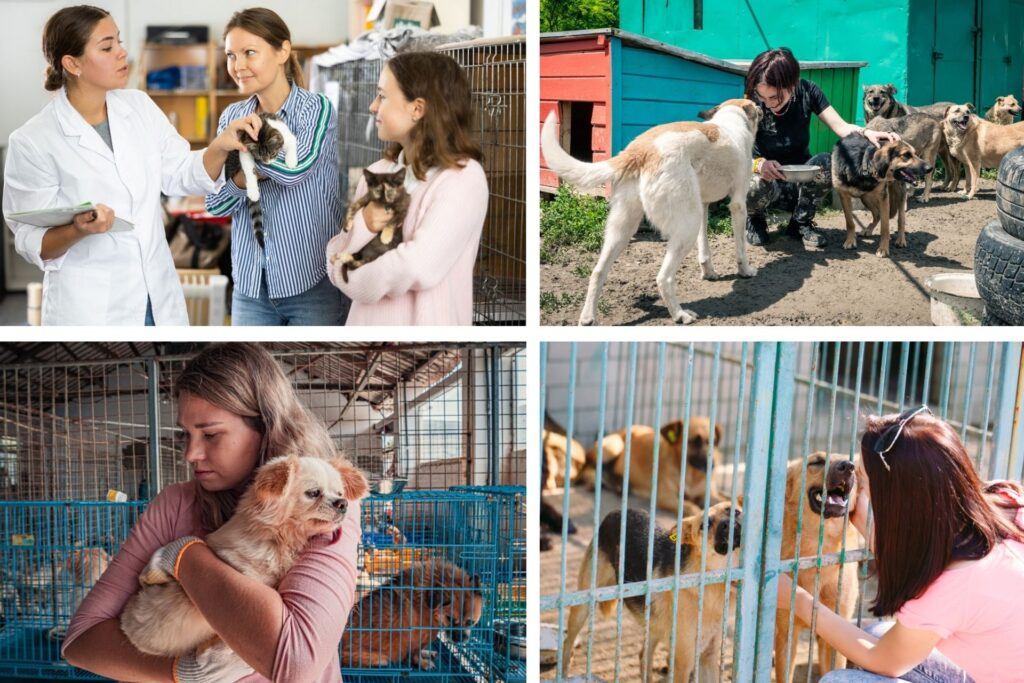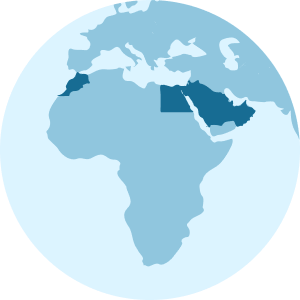Volunteering in Italy: Requirements, best programs, and costs
If you are charitably motivated and love to travel, volunteering in Italy is the best way to get to know a country.
Traveling abroad doesn’t always have to mean sightseeing with a guidebook in hand, there’s also the option of giving your time to a meaningful cause. So, if you’ve been thinking about volunteering in Italy but aren’t quite sure where to start, this article will walk you through everything you need to know.
Volunteering in Italy comes with many rewards. Beyond the positive impact you’ll make on local communities or the environment, it’s also a chance to gain new skills and grow both personally and professionally. Whether you’re drawn to the hills of Tuscany, a quiet village in Sicily, or the buzz of Rome, take some time to explore the requirements and discover the types of volunteer projects available. Your meaningful Italian adventure could be just around the corner!

5 reasons to volunteer in Italy
Why should you consider volunteering in Italy? Because it’s a meaningful way to give back. Volunteering is a selfless, unpaid act that comes from a genuine desire to support people, communities, or causes. You focus on making a positive impact where people need it most.
Choosing to volunteer with an organization in Italy means spending a few weeks or months in one of the most culturally rich countries in the world — all while growing personally and enjoying a safe, welcoming environment. Here are five key reasons why volunteering in Italy is such a rewarding experience:
- Learn Italian: By volunteering in Italy and engaging with local communities, you’ll pick up one of the most beautiful languages in the world. Plus, many programs even include beginner Italian lessons to help you get started.
- Immerse yourself in the local culture: You’ll get to live with Italian families and experience their culture up close. Expect warm greetings, lively conversations full of hand gestures, and passionate debates around the dinner table.
- Get to know its traditional festivals: Whether it’s for religious, agricultural, or cultural reasons, you’ll often find yourself in the middle of local traditions that take place year-round.
- Engage with art and history: Italy is home to some of the world’s most iconic historic treasures, like the Colosseum, the Valley of the Temples and the Vatican. As a volunteer, might get the chance to be part of their story by helping preserve them.
- Strengthen your resume: Many volunteer programs in Italy are linked to European initiatives like the European Solidarity Corps (ESC), which not only provide you with valuable training and experience but also offer participation certificates or university credits.

Requirements for volunteering in Italy
Let’s take a look at the basics you’ll need to volunteer in Italy. Generally, organizations and NGOs aren’t too strict since they know volunteers come with a genuine desire to help. The main requirements are pretty straightforward things like age, legal documents to enter the country, and a responsible commitment to your role. Here’s a quick checklist to see if you meet the essentials:
- Required age: Minimum age is usually 18 years old and some programs, such as the European Solidarity Corps, accept up to a maximum of 30 years old.
- Valid passport or ID card: If you’re from the EU, just your national ID will do. But if you’re coming from outside the EU, make sure you have a valid passport that covers your entire stay.
- Volunteer visa: For programs longer than 90 days, non-EU citizens will need to apply for a special visa. This usually involves providing an invitation letter, proof of accommodation, health insurance, financial means, and documentation related to the project.
- Motivation letter: Many organizations will ask you to write a motivation letter explaining why you want to get involved, and it’s also common to have a preliminary interview.
- Basic level of Italian or English: Organizers usually require you to have some knowledge of English or Italian so you can communicate with them, other volunteers, and locals.
- Commitment to the project: You’ll be asked to sign an agreement committing to follow certain ethical guidelines, respect community rules, and stay for the full length of the volunteer program.
Choose the best digital connectivity during your volunteer placement
Having a solid internet connection from the moment you arrive in Italy is key during your volunteer stay. It ensures you can easily stay in touch with the NGO, navigate with GPS, let your family know you’ve arrived safely, and access any important documents online.
With Holafly’s monthly plans, staying connected is simple and fast—just activate the eSIM through the app in minutes. You’ll get 5G coverage everywhere, from big cities to rural areas, unlimited data, a reliable connection, and the option to use two devices at the same time (all for $67.90 per month).
Important: If you are a frequent traveler and want to stay connected without worrying about expensive roaming or looking for a new SIM at every destination, Holafly’s subscription plans are for you. With a single eSIM, enjoy internet in more than 170 countries for a fixed price and no surprises on your bill. Travel without limits and connect easily and securely! 🚀🌍

Best volunteer programs for Italy
Every volunteer program in Italy offers a unique, life-changing experience. We’ve picked three active organizations in the country, each with different types of projects, costs, durations, and locations, so you can find the right fit for you.
1. European Solidarity Corps (ESC) – Volunteering in Pavia
The EU fully funds the European Solidarity Corps (ESC), an initiative for young people aged 18 to 30 who want to volunteer in Italy and across Europe. One of its standout projects is based in Pavia, aiming to build an inclusive and multicultural community. As a volunteer there, you’ll focus on promoting sustainability, recycling, and fighting educational poverty by organizing workshops, community events, and awareness campaigns. Here’s a closer look at this ESC volunteer opportunity:
| Characteristics | Details |
| Requirements | 18 to 30 years old, EU resident, committed and motivated. |
| Duration | 5 months |
| What’s included | Accommodation, meals, insurance, training, transportation and language support |
| Price | Free, funded by the EU |
2. Cooperating Volunteers – Sustainable agriculture in Rome
Interested in environmental projects? This volunteer program in Rome lets you dive into sustainable farming while soaking up the city’s rich culture. You’ll be involved in planting, tending, and harvesting local crops using eco-friendly methods, all aimed at supporting self-sufficient communities. It’s a great fit if you’re passionate about agriculture and nature. Here’s more details:
| Characteristics | Details |
| Requirements | Older than 18 years of age |
| Duration | From 2 weeks to 6 months |
| What’s included | Camping accommodation, two meals a day, 24/7 support, airport pick-up and liability insurance |
| Price | From $595 for two weeks |

3. Scuola Leonardo da Vinci – Italian + Volunteer work
The best way to learn Italian is by volunteering in Italy through Scuola Leonardo da Vinci, which has several locations across the country. This program lets you combine in-person language classes with volunteering twice a week. Your tasks will typically involve helping out in schools, supporting vulnerable groups, or taking part in environmental projects.
| Characteristics | Details |
| Requirements | Of legal age, registration at least four weeks in advance |
| Duration | From 4 weeks to 12 months |
| What’s included | Intensive Italian language course, insurance |
| Price | From $1,458 for four weeks |
Types of volunteering projects in Italy
What kind of help do you want to offer, what drives you, and what can you bring to the table? Asking yourself these three questions is essential to find a project that truly fits your interests and skills. To have a meaningful and rewarding experience, you need to dive into a setting where you feel comfortable with the tasks at hand and confident that you can give your best.
Maybe you’re passionate about animals, care deeply about the environment, have a background in healthcare, or simply love working with kids. Whatever your interests, here are some types of volunteer opportunities where you can make a difference.
1. Education and training in schools
If education is your passion, Italy offers plenty of volunteer opportunities working with schools and youth centers. These programs usually focus on helping students by providing tutoring, language workshops, and cultural activities. For example, the Bridges Association runs a European Voluntary Service program centered on education in the Castel Goffredo area of Lombardy.
2. Child care and support for women
Community organizations and NGOs working with families have started several projects focused on supporting children and women at risk of social exclusion. For instance, Caritas Joven offers a social inclusion volunteer program in Bolzano, northern Italy, where you can get involved by organizing recreational activities, providing emotional support, running cooking workshops, and promoting intercultural understanding.
3. Animal care and protection
Animals need support too, so if you’re passionate about them, you can volunteer helping out at shelters—cleaning spaces, walking and caring for dogs, assisting with adoption campaigns, or managing social media. One organization doing this important work is Vitadacani, based near Milan, which runs a program focused on animal shelter care and animal rights advocacy.

4. Environmental care and sustainable agriculture
Italy is deeply committed to environmental sustainability volunteering, focusing on protecting biodiversity, organic farming, and environmental education. If you’re passionate about nature and agriculture, you could join a program in Cava de’ Tirreni, Campania, with the organization Terra Metelliana. Your role would involve working in urban gardens and organizing events around climate change, environmental awareness, and the circular economy. A system aimed at minimizing waste and maximizing resource use.
5. Health and wellness
Médicos Sin Fronteras is active in cities like Rome, Palermo, Turin, Naples, and Udine, focusing on helping vulnerable populations such as homeless people and those with mental health issues. If you have medical skills, volunteering with them in Italy is a meaningful way to assist with vaccinations, provide healthcare materials, and run health education sessions.
How much does it cost to volunteer in Italy?
The cost of volunteering in Italy can vary depending on the program, its duration, and the services provided. If you’re interested in volunteering in Italy for free, some initiatives like the European Solidarity Corps (ESC) are fully funded by the EU. However, other organizations may require a registration fee to help cover accommodation and meals. Don’t forget to budget for any personal costs during your free time to explore the country.

| Concept | Approximate cost |
| Program fee | From $113 to $340 |
| International flight | $113-455 |
| Medical or travel insurance | $56-113 per month |
| Local transportation | $35-68 per month by cab or bus |
| Accommodation | $170-284 per week, if not included |
| Personal expenses | $56-113 |
Frequently asked questions about volunteering in Italy
If you’re an EU citizen, you just need your ID card. If you’re from outside the EU, it depends on how long you’ll be volunteering. For stays under 90 days, a valid passport is enough, but if you plan to stay longer, you’ll need to get a special volunteer visa.
We recommend that you speak Italian so you can engage with the local population. If you speak English, you’ll be able to communicate with the rest of the team and your colleagues.
You can choose from projects in education, childcare, environment, refugee aid, community health and animal protection.
Most programs cover your accommodation, meals, health insurance, training, and local transportation. The European Solidarity Corps fully funds some programs, while other organizations require you to pay a registration fee.
Yes, volunteering usually involves working Monday to Friday for about four to five hours a day, leaving you with half the day free to explore the city. Weekends are perfect for traveling around the country by train or bus.














































 Pay
Pay  Language
Language  Currency
Currency 


















 No results found
No results found








